
REPORT FOR FISHERY TRAINING SKILLS
Introduction
Fisheries are one of the most significant renewable resources that Eastern and Indian Ocean (IO) countries have for food security, livelihoods and economic growth. Efforts, however, need to be made to ensure that as the population in these countries grows, and demand for food and employment likewise grows, the benefits that fishery resources provide are protected through sustainable management and value-addition.
Both aquaculture and fisheries sectors have forward linkages to postharvest handling, processing, and marketing that ultimately determine fish price (Delgadoet al. 2003). Small scale fish producers will remain at a disadvantage unless they develop better links in their product’s value chain (FAO-EIFAC/EC 2001). Several studies have demonstrated that usually small scale fish harvesters obtain a small portion of the retail price in undeveloped fisheries (Gudmundssonet al. 2006; Gestssonet al. 2010). The situation is worse for poor fishers who have very limited access to capital, new technologies, and land and water resources, in that they do not benefit proportionately from recent improvements in technology and market expansion (Deyet al. 2008).
HIBO fishery cooperatives network is implementing the project supported by COOPI, UNHCR and EU. The aim is to train for Somalia returnees and IDPs and Host community in Mogadishu Banadir region. On enable to be fully skilled fishermen’s. And to be catch fish as normal fishermen’s as usual. And all the participants selected by COOPI and UNHCR, and monthly they receive each student $50 for student transport fee.
Background of Report
This report summarizes the under taken work plan, training programs during the ongoing of this project, as mentioned this project assists the returnees, IDPs and host communities in Banadir religion.
On the other hand Hibo Fishery Cooperative Network has well experienced instructions have the capacity to make theoretical and practical sessions of the training.
The training starts 08:00 am and 12:30 pm. The 50 selected trainees from both sides have learned important sea training that was the initiative of the training project
Types of swimming
Types of Driving
Types of fishing gears
Connecting ropes to the anchors
Connecting ropes to the Bonus
Different types of Twine
Net making and mending
How to use hand lines, Trailing, Gill nets
How to use fishing Traps
Fish processing and preservation
Somali fishing zones
On shore fishing |off shore fishing
Fishing seasons in Somali water
Monsoon seasons
Boat building and maintenance
Using life jackets for safety
Fish marketing
Machine and its maintenance
Shark fins and how to process
Using masks, Sea shoes and driving suit.
The trainees were very happy and have good morals for the lessons and topics prepared by the Hibo instructors, there was 4 days of work plans, as agreed by COOPI, UNHCR, EU and HIBO, sometimes the trainees used to work in groups such as:
G1- Used to go sea activities
G2- Used to practice Netting outside of the boat
G3- Used to handle fish of the fish markets
Methodology of Implementation
The methodology of implementation our activities conducting theoretical and practical training by Hibo Fishery Cooperative Network from 21-5-2018 to 21-10-2018 HIBO Fishery Cooperative fulfilled the importance of the training program by returnees rules and regulations set sea training and its knowledge.
Challenges
During the ongoing of the training of 6 months, these was no any challenges met both the trainees and Hibo far away distances, although there was sometimes Road block code, the instructors Hibo and the trainees were respecting the time and the curriculum of the training because the hibo fishery training center locates hamar weyne beach district.
Objectives of the training
Creating job opportunities to the returnees
Teach general knowledge of marine skills
Formation of Fishers Association from this first lot
To distribute the important tools craft at the end of the training
To teach the trainees the fishing law
To encourage other younger to become Real fishermen
To orientate the society fish consumption
Impact
HIBO fishery cooperatives Network is very happy because of how the training program takes place and how trainees received the topics of the training
Both the HIBO fishing Cooperatives Network and the trainees selected from B/C thanking Coopi, UNHCR, EU and also HIBO.
HIBO Recommendations
HIBO Fishery Cooperatives Network recommends to en large such projects that will enhance the coastal communities and will increase marine resources production.
 0
0 

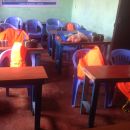
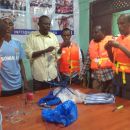
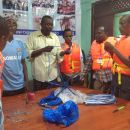
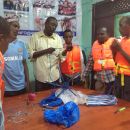
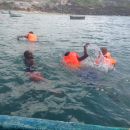
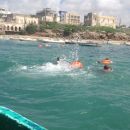
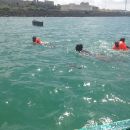
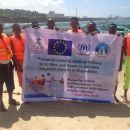
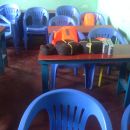
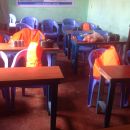
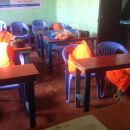
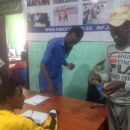
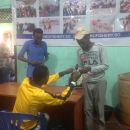
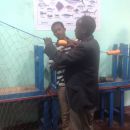
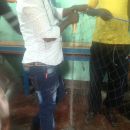
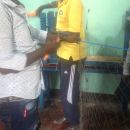
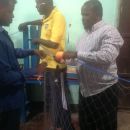
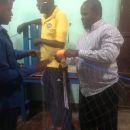
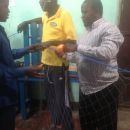
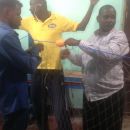
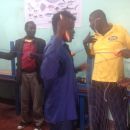
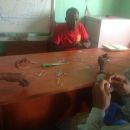
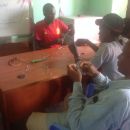
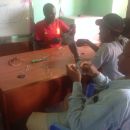
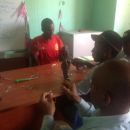
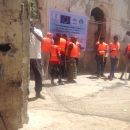
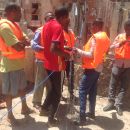
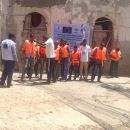
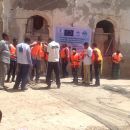
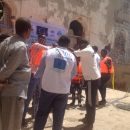
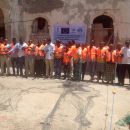
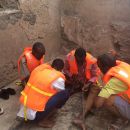
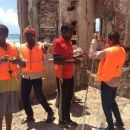
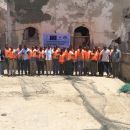
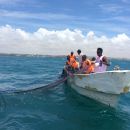
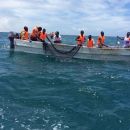
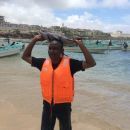
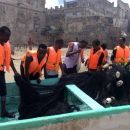
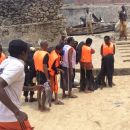
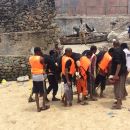

REPORT FOR FISHERY TRAINING SKILLS
Project Name: Livelihoods support for Somalia Returnees, IDPs and Host Community for Fishery Training skills. Implementing Org: HIBO Fishery Cooperatives Network. Funding partner: COOPI, UNHCR and EU. Starting Date: 21/05/2018 Project Finished